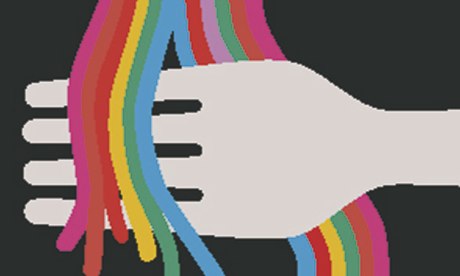
The other day, I experienced minor irritation on a plane. I hate it when journalists use columns to pursue customer service battles, so I shan't name the airline; just imagine literally any carrier founded by a bothersome bearded entrepreneur with a hot-air balloon fetish. Anyway, this airline, in an effort to make economy class glitzy, now hands out paper menus. Instead of a barked query – "Chicken or beef?" – you get three options, two with meat, one without. The hitch is that veggie meals don't seem to be carried in greater numbers than before. The result: twice now, I've started looking forward to pasta, only to be told it's not an option. Lest you imagine I'm turning into the back-of-the-plane equivalent of Alec Baldwin, let me stress: I didn't mind that much. What struck me about the annoyance I did feel, though, was that if nobody had raised the pasta possibility, I'd never have felt it. I was cross because I didn't get something I hadn't known I wanted until the airline that couldn't give it to me suggested it could.
The truth embodied in this inconsequential tale is so huge, yet so obvious, that it can be hard to see how weird it is. How can happiness be influenced by things we don't have, were never going to have and wouldn't have missed, if the thought hadn't occurred? Yet it's sufficiently fundamental that the economists Rakesh Sarin and Manel Baucells, in their book Engineering Happiness, call it "the fundamental question" of wellbeing: happiness equals reality minus expectations. Raise expectations beyond reality's capacity to meet them, and misery follows. The reverse applies, too: you can make people happier, studies suggest, by delivering bad news, then withdrawing it. Hence the car salesman trick: lure the customer with a deal; reveal it doesn't apply to the car being considered; then have a word with your manager, who – hallelujah! – agrees to an exception. Relief triggers happiness, and a sale.
A popular recent post on the website Wait But Why suggests expectations might be to blame for the malaise of the entire "millennial" generation. Baby boomers were raised by their Depression-era parents to expect that hard work might bring security. Thanks to the economy, they did better than that. But they instilled even higher expectations ("You can do anything!") in their kids, who face a worse economy, plus ceaseless distorted data, from Facebook and suchlike, about how others are faring. I'm not sure I buy this: it smacks of the tendentious "millennials are narcissists" line, as if it's the height of self-absorption to want to afford a flat. Still, it's clear expectations can sometimes run wild, so it's worth asking if it's time to lower yours.
Ah. Yes. Which brings us to the problem. How? Many gurus advise keeping expectations realistic, as if you could simply choose this. They do sometimes suggest tactics, the best of which don't involve directly changing your thoughts, but your environment: "choose your pond" wisely, as Sarin and Baucells put it, since the place where you live, the work you do and the people you socialise with are all potential sources of exaggerated expectations. In the end, though, I suspect "happiness equals reality minus expectations" is one of those insights you can't translate into tips. You just have to remain aware of it. Besides, you know what? The chicken was fine.
oliver.burkeman@theguardian.com
Follow Oliver on Twitter

